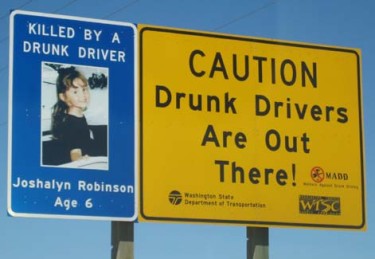That was the subject of an e-mail I received from an unlikely source: David Plouffe, manager of Barack Obama’s 2008 presidential campaign and currently Senior Vice President of Policy and Strategy for the Uber ridesharing service company.
Plouffe was touting a new study Uber conducted with Mothers Against Drunk Driving (MADD). The study found UberX decreased drunk-driving crashes in California by 60 per month for drivers under 30. That means Uber has prevented an estimated 1,800 crashes in California since its introduction two and half years ago. Plouffe writes, “When empowered with safe, reliable and affordable transportation options like Uber, people are making better, smarter choices that are making our roads safer for everyone.”
Uber is reinforcing this message, and further encouraging safe driving, by donating $1 to MADD for each Uber trip made between 3 p.m. and 12 a.m. on the upcoming Super Bowl Sunday.
This is great news from an exciting new company, but I wonder whether David Plouffe—a political progressive in good standing—recognizes the irony of his involvement in this free-market success story, a success that has come under fire from local governments across the nation in response to complaints from incumbent taxi providers who hate the competition Uber provides.
Progressives rarely, if ever, believe that “choice is a powerful thing” when it comes to public policy. From banning large sodas to opposing charter schools, progressives continuously find reasons to restrict individual choice.
In fact, the guiding principle behind the progressive movement is that the modern world is too complex to allow unrestricted choice in the marketplace. Progressives believe that the benevolent guidance of experts is necessary to regulate markets to ensure that they promote public benefits. These benefits include public safety, which is increasingly pursued in a heavy-handed manner (including greater public surveillance and monitoring) by governments at all levels.
Uber’s experience shows, once again, that decentralization and choice can enhance public safety while providing excellent consumer value. Uber not only provides a private service to the customers it transports; it also provides a public service by getting over-served individuals off the road and into Uber cars after last call.
This benefit is entirely unplanned and is an example of what economists call a “positive externality.” Positive externalities occur when the social benefits of a transaction exceed the private benefits. This clearly occurs when drunks contact Uber for a ride instead of driving while intoxicated. Both of the private parties—the Uber driver and the passenger—benefit, with the driver (and Uber) receiving cash and the customer getting home safely. But everyone else driving at that time also benefits, because the transaction removes a potentially dangerous driver from the road.
Economic textbooks recommend that governments subsidize activities that create positive externalities. The reason is that parties to such a transaction appropriate only a fraction of the total value created, because some of the value “spills over” to society at large rather than being retained by the consumer or producer. People guided by entirely private motives would therefore choose to purchase less of this service than the amount that creates maximum, society-wide benefits.
In the case of Uber and other ridesharing services, the additional social value is the improved public safety for other drivers on the road, which they receive free of charge thanks to the success of these services. If more people were encouraged and/or subsidized, more would use Uber, and public safety would thereby improve further. An intellectually consistent progressive would therefore support using public resources to encourage the use of ridesharing services, at least during critical times when more drunk drivers are likely to be on the road.
However, progressive politicians and their supporters regularly attack Uber and other ridesharing services. Existing taxi companies and organized labor oppose the new competition, and they give campaign money to politicians. Municipal governments, for their part, sometimes simply resent not being able to regulate the upstarts and fear a loss of local tax revenues if prices fall.
As a result, in some cities, ridesharing services have faced resistance from politicians who are probably on David Plouffe’s speed-dial.
If you’re out this Sunday watching the Super Bowl and have a few too many, download the Uber app (if you don’t already have it), and let them drive you home. It will be safer for you and others. You’ll also be supporting a good cause, because a dollar of your fare will be donated to MADD.
You’ll also help demonstrate that “choice is a powerful thing” and make a small but important stand in support of economic liberty.


